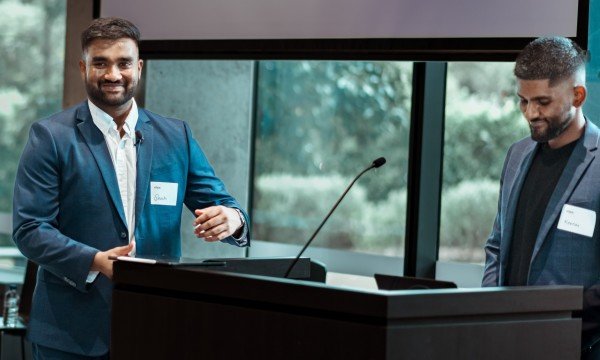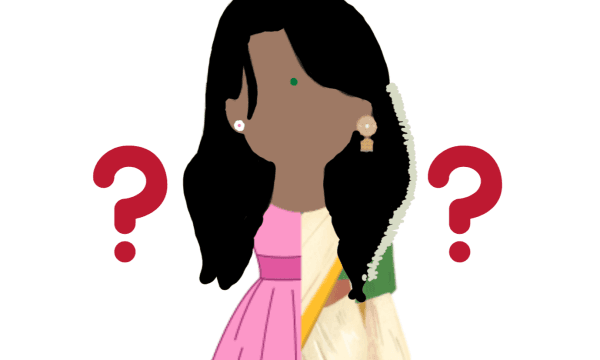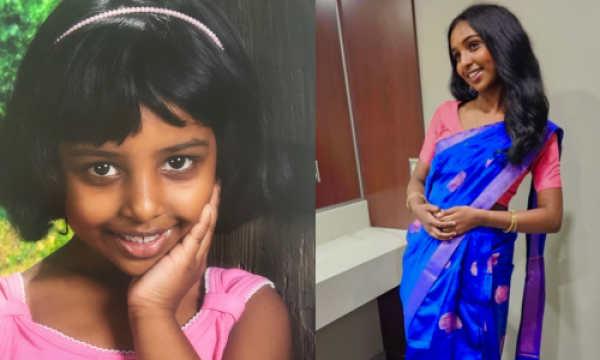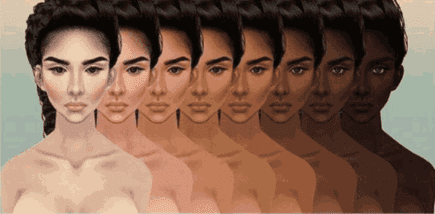
___
***Are you or someone you know in the global Tamil community doing great things? We'd love to feature them: FILL OUT THIS FORM ***
Network & collaborate with Tamil Changemakers from around the world. Request to join our private LinkedIn community here.
___
In 2016, a new social campaign celebrated darker skin tones, embracing all shades of skin in a bid to combat colourism.
As a young South Asian woman, I am no stranger to the atrociously absurd connotations colourism breeds in communities worldwide. Beauty is in the eye of the beholder, or so they say, but communities globally favour “fair” skin and this is a stigma that has seeped into yet another decade.
Colourism is not signified to one ethnicity: it is a topical, universal issue that all races appear to face. In South Asia, some individuals claim that “fair skin” boasts as more attractive. In Africa, light skin versus dark skin denotes negative connotations.
It has even been suggested that a darker skinned black woman is less likely to get married than her fair skin counterpart. The stigma of “dark skin” is a hard pill to swallow for many young women, discriminated purely on the basis of the complexion of their skin.

Melanin magic
It is wholly worrying that dated stigmas surrounding colourism have infected the minds of today’s youth, particularly young, ethnic girls, who have it imprinted in their minds that the colour of their skin determines their future prospects. All shades of skin are beautiful and to me, beauty radiates from within.
This video that went viral on Instagram depicts the plight of a young Tamil girl who feels that her skin tone would affect her prospects of marriage as she is “quite dark”. This video resonates the pain in her voice that her skin tone would paint a future for her that would disadvantage her on the basis of her skin. It truly is upsetting that an innocent, fresh faced child gleaming with radiance, feels this way.
While many of us fight against colourism and taking a stance against conforming to unrealistic and jaded standards of beauty; beauty companies continue to deface our efforts. Brands such as Fair and Lovely.
WATCH NEXT:
“Fair and Lovely”
Fair and Lovely is a “bestselling skin lightening cream” sold by Unilever. The cream carries much disgruntle with it; giving the impression that dark skin is less attractive than fair skin.
BBC reports that “Unilever and its Indian subsidiary Hindustan Unilever Limited (HUL) have been criticised extensively for promoting colourism and making girls with darker shades feel insecure and inadequate.”
The cream is particularly abrasive in its derogatory fashion in which it affects youth. Young girls in particular, growing up in south Asian countries, will encounter billboard posters, adverts and commercials that praise lighter skin tones over dark. This of course, no doubt, will make one with darker skin feel less empowered. Skin colour is a stigmatised subject in south Asian communities and one that is felt not just by young girls and women; but also boys and men. Skin bleaching and favouring lighter skin is also a topical issue for men; with some men feeling the wraths of stereotypes that lighter means someone is inherently more beautiful than darker-skinned people.
Fair and Lovely is India’s largest selling skin lightening cream, with 24 billion rupees ($317m; £256m) in annual revenue. The BBC report that since it came into production in 1975, millions of tubes are bought every year by teenagers and young women “in a country where lighter skin is routinely equated with beauty” (ibid).
On 25th June 2020, Unilever made a landmark decision to replace the name of “Fair and Lovely”. The BBC report that in the past two weeks, three change.org petitions have emerged, urging Unilever to banish the creams from markets in Asia and Asian stores across Western countries. (ibid).
I personally find the campaigning adverts for Fair and Lovely, mildly put, outlandish and outrageous. The below image is from a billboard advertisement displayed in India and Bangladesh.
-

image source: https://images.app.goo.gl/Au9PU2ucV2YWojki7
India faces a battle of tackling perceptions that dark skin is unattractive in comparison to light skin. However, with televised adverts that show a dark skin girl not getting selected as a lead dancer over her fair skinned counterpart; with her counterpart telling her to try Fair and Lovely for 30 days for fairer skin in order to selected; not much hope gleams. The advert (with subtitles), aired in 2017, can be viewed here: https://www.youtube.com/watch?v=-Aik4LKf8oM
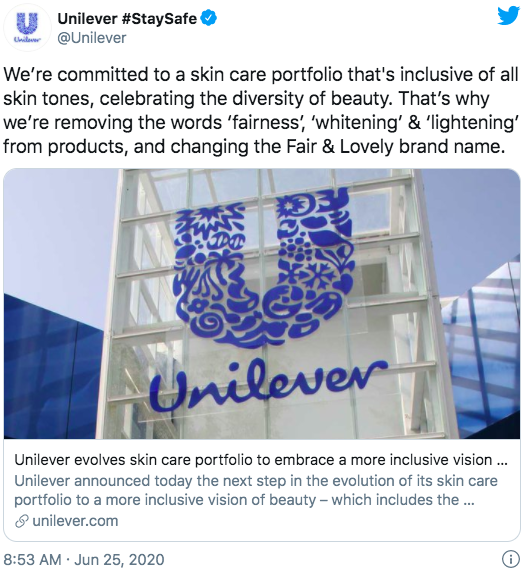
Whilst I welcome Unilever’s tweet (above) with open arms, I personally and strongly am of the view that bleaching, whitening and any creams to enhance “fairness” should be banned in totality. Such creams do nothing more than breed insecurity surrounding skin tones and appearance.
There are also highly controversial qualms within the South Asian community in regards to fairer skin being more favourable than darker skin. A marriage website (shaadi.com) recently came into fire for their requirements of asking users to select their skin tone on a skin tone filter, while registering to use the app. A representative at Shaadi.com told a shocked user that the skin filter requirement “is required by most parents.” This absurd and controversial feature has been recently removed in June 2020 after facing backlash and an online petition raising concerns on such practice.
It truly appears that colourism is in all walks of life and cannot remain a taboo: we must speak out and against it.
Black Lives Matter; Melanin matters
The National Conference of Community and Justice reports that there is a distinct form of discrimination where people with lighter skin are treated better than those with darker skin shades. There is suggestion that Unilever made the landmark decision to change the name of their whitening cream, sparked by recent protests of Black Lives Matter and anti – racism global efforts.
Colourism is an issue that must be addressed, combatted and targeted head on. We hear slogans such as “India’s got colour” and “team light skin” but I feel we need more prominence for phrases of inclusivity. It is important we change the language in which we talk about skin shades as these do carry racial profiling which we as a globe, now more than ever, need to combat.
It is indeed interesting that Fair and Lovely will still be sold, albeit under a different brand name, when in 2014, The Advertising Standards Council of India (ASCI) stated “no advertisement should communicate any discrimination or reinforce negative social stereotyping on the basis of skin colour.” As depicted above, despite regulatory framework attempted to be implemented, advertisements have indeed continued shaming darker skin tones in India and worldwide.
Black Lives Matter has sparked a key, vital movement globally which has raised awareness into derogative racial profiling, blackface and colourism. It is time for countries to prohibit factors that promote racial profiling and colourism as it is truly affecting younger generations into thinking fair is lovely; when all shades are lovely.
Colourism is considered as a “hidden human rights challenge” by the United Nations Human Rights Office of the High Commissioner. Stephenie Cowell poignantly states that colourism is “a further level of racism within a race.“
“Based on shades of your skin, in some spaces, you’re perceived as either being prettier or of a higher social class. And it is usually the lighter ones who are perceived to be of a higher class than those who are darker skinned.” (ibid).
My two cents…
I am wholly against colourism and any consideration that one skin tone is more attractive than another. All skin shades are beautiful. In the UK, many hair accessory shops were found to be selling skin whitening products and in 2018, the first jail sentence for the sale of dangerous skin whitening products was issued. This positive measure seems minuscule in comparison to the global plight of colourism we are facing but nonetheless a step in the right direction.
As a young South Asian woman, I do find colourism a stigmatised topic that needs addressing. It pains me to see individuals feel any less important on the basis of skin colour and I strongly desire children to grow up in a world where colourism is a notion of the past.
Unfair is lovely; fair is lovely and melanin matters. Every skin shade matters and everyone matters.

This article is written with information correct as of 8th July 2020.
**Looking to create your love story? Join the other couples who have dated and married through myTamilDate.com!***
"myTamilDate Success Story: It Was Love At First Sight For Madhu & Niya"
"myTamilDate Love Story: Jenani & Nav Found Each Other At The Right Time And Right Place In Life"
"myTamilDate.com Love Story: Tharshi & Ravi Found Love During Lockdown"
Related Articles:
- "The Tamil Creator Podcast (Ep.24): Nelson Sivalingam - UK-Based Serial Entrepreneur (Tech & Food), Podcast Host & Award-Winning Filmmaker"
- "The Tamil Creator Podcast (Ep.23): Maya Bastian - Investigative Video Journalist To Award-Winning Film Director (Including 2021 Cannes Festival Entrant)"
- "The Tamil Creator Podcast (Ep.22): Sathish Muneeswaran - Personal Trainer Changing The Conversation In The Tamil Community Around Strength Training, Fitness & Healthy Eating"
- "The Tamil Creator Podcast (Ep.21): Shayna Mehta – Aspiring Doctor & Award-Winning Div 1 Basketball Player Challenges The Notion That Brown Girls Can't Ball"
- "The Tamil Creator Podcast (Ep.20): Anand Venkateswaran – Crypto Believer Behind $69M NFT Purchase & Co-Manager of Metapurse, World's Largest NFT Fund"
- "The Tamil Creator (Ep.19): Priya Ragu – Swiss-Tamil Music Artist On A Meteoric Rise To Global Fame"
- "The Tamil Creator (Ep.18): Thusy Suntharam – Montreal Filmmaker Pursuing Big Screen Dreams While Working A 9-to-5"
- "The Tamil Creator (Ep.17): Kumutha Ramanathan – Award-Winning Journalist & Budding Entrepreneur"
- "The Tamil Creator (Ep.16): Thiru Vignarajah – Baltimore Mayoral Candidate, Federal Prosecutor & Harvard Law School Graduate"
- "The Tamil Creator (Ep.15): Thiviyaa Sehasothy – Marketing Professional By Day, Savvy Art Entrepreneur By Night"
- "Award-Winning Division 1 Basketball Player And Pre-Med STudent Shayna Mehta Challenges The Notion That Brown Girls Can't Ball"
- "This Tamil-Canadian Co-Founder Of An Aussie Startup Raised $7.1M Series A To Manage Property Differently"
- "Danny Sriskandarajah's Journey From Rural Sri Lanka to CEO of Oxfam Great Britain"
- "The NBA Bubble: Dr. Priya Sampathkumar Helped Make It Happen"
- "These Tamil Founders Behind Agritech Startup Dunya Habitats Want To Alleviate Food Security Globally"
- "Marketing Maven Jackson Jeyanayagam Shares Insights From His Illustrious 20-Year Career"
- "Angel Investor Jay Vasantharajah On Building His Portfolio One Day At A Time"
- "Meet Tamil-Canadian Journalist Kumutha Ramanathan"
- "Breaking Into Hollywood: Meet Tamil-Canadian Actor Vas Saranga"
- "Meet Rebecca Dharmapalan - Filmmaker, Legal Scholar, And Activist"







